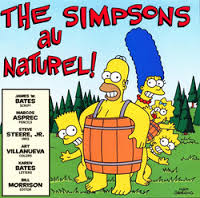|
ESL Forum:
Techniques and methods
in Language Teaching
Games, activities
and teaching ideas
Grammar and
Linguistics
Teaching material
Concerning
worksheets
Concerning
powerpoints
Concerning online
exercises
Make suggestions,
report errors
Ask for help
Message board
|
ESL forum >
Ask for help > vocabulary and grammar questions
vocabulary and grammar questions
|

Pedro14

|
vocabulary and grammar questions
|
|
Hello everybody, Hope you all have had a nice weekend. Last Friday one of my advanced students asked me if there is an expression in English for this: A friend helps you out fixing something. Once the job is over, he tells you jokingly that you owe him 50 euros. You answer that you are short of money and that you can �t give him any money. Then, your friend replies: "Then you �ll have to pay with your body- jokingly as well." In Spanish there is one expression for the last part "pagar en especias; literally pay with species. I �ve been searching the net and found the expressions "to pay in kind" / "to pay with the flesh" / "You can take it out in trade". Not all of them appear in an ordinary printed dictionary, though. Which one is the most natural one, if any? The following question I have is about some gaps which should be filled with modal verbs of obligation or deduction. I do understand when to use them but there are some gaps I �m not completely sure about. If anyone were willing to help me out with it , I would send them the sentences via PM. They are just 11 sentences. I don �t want to take much space from the forum. Thanks in advance. |
3 May 2015
|
|
|
|

yanogator

|
|
I haven �t thought about it too deeply, but I think "I �ll take it out in trade" is probably the closest expression we have. It means that if his profession is fixing things, and you teach English, then in payment for his help, you would give him English lessons. To pay in kind would be for you to do the same for your friend as he did for you. Your friend might say "You can pay me with flesh" (not "the flesh), but I don �t think it �s a very common expression these days. I �ll gladly help you out with the rest. As far as your concern about forum space, the length of a post here doesn �t make any difference, so it wouldn �t have been a problem to post them in the same post. Bruce |
3 May 2015
|
|
|

spinney

|
|
We used to say "payment in kind." I haven �t heard it said for while, mind. I thought the expression in Spanish was "pagar en carne," or is that just Andalucia? |
3 May 2015
|
|
|

Pedro14

|
|
Yeah, you can also say "pagar en carne" . Then according to Bruce detailed answer, "pay in kind" and "take it out in trade" wouldn �t be a good translation. I guess "pay with your body" or "pay with flesh" would be the closer expressions in meaning. The later is not common though. Thanks a bunch Bruce and spinney.
|
3 May 2015
|
|
|

yanogator

|
|
One more thing (highly tongue-in-cheek), if you are a prostitute, then "take it out in trade" is appropriate. Bruce |
3 May 2015
|
|
|

MoodyMoody

|
|
Maybe "It �ll cost you an arm and a leg" is the closest equivalent. |
3 May 2015
|
|
|

almaz

|
|
In Glasgow, you used to hear people who were unable to repay a loan suggest that it should be taken out of their "bridge" –that is, the bridge of their nose. In other words, you might have to fight for it. |
3 May 2015
|
|
|

douglas

|
|
If you are just talking about manual labor you could say "You �ll have to work it off."
If it �s meant in a sexual way the best I could think of is "You �ll have to pay for it the hard way."
Cheers,
Douglas |
4 May 2015
|
|
|

cunliffe

|
|
Since Pedro mentions the comment was said jokingly, I think MoodyMoody �s suggestion is good. �It �ll cost you an arm and a leg, � a comment meant to be said with a wink, if ever there was one. �Paying in kind � means paying with sexual favours. |
4 May 2015
|
|
|

Peter Hardy

|
|
Or you could pay �au naturel �.� Borrowed from the French, it means �in the nude �, which comes close to paying �in flesh �.�I would only offer this option to�a friend of the opposite sex, though. Cheers, Peter

|
4 May 2015
|
|
|

Pedro14

|
|
Thanks a million to all of you for your help! |
4 May 2015
|
|
|